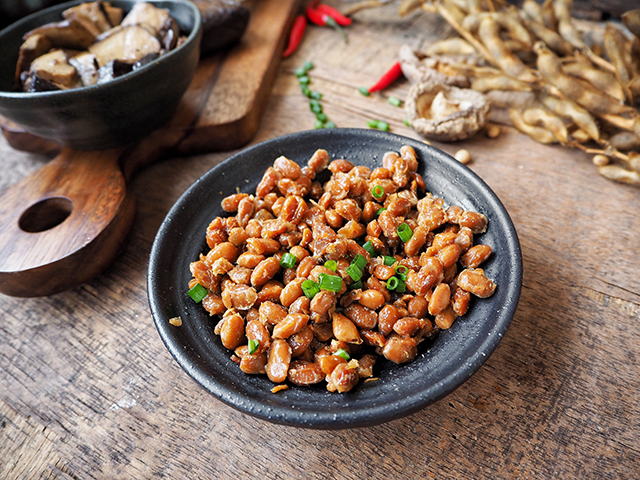9 Foods you thought were bad for you, but actually aren’t
03/28/2019 / By Michelle Simmons

There are foods that you don’t eat because growing up, you knew them as “unhealthy.” The foods that you eat, or don’t eat, may have also been influenced by the media or corporations. Here are nine foods that are most commonly perceived as unhealthy, but are actually good for you.
- Bananas: Bananas are carbohydrate- and sugar-rich. However, consuming these fruits in moderation actually helps regulate blood sugar levels because of their high pectin fiber content. In addition, they provide many nutrients like potassium, vitamin B6, and copper.
- Chocolate: People avoid chocolate because of its sugar content. However, chocolate made with cacao with no artificial ingredients or dairy is actually healthy. Real chocolate actually contains more polyphenols and other powerful anti-aging antioxidants compared to most foods. These substances protect against diseases and prevent DNA damage that causes signs of aging such as wrinkles. Eat at least one square of 75 percent to 85 percent of cacao dark chocolate each night as a dessert to reap its benefits.
- Coconut oil: Many people avoid coconut oil because of its saturated fat content, but studies have shown that there is no association between the consumption of saturated fat and a higher risk of heart disease. In fact, research showed that this type of oil is actually good for your heart; it can help increase your levels of high-density lipoprotein (HDL) or “good” cholesterol because of its medium-chain fatty acids. Coconut oil can also help fight bacteria and boost your metabolism. Use coconut oil when sauteing vegetables or use it as a substitute for butter in baking. (Related: Hidden Truth About Coconut Oil: 10 Facts You Need To Know.)
- Coffee: Drinking a cup or two of coffee has health benefits: it can lower the risk of Type 2 diabetes, Alzheimer’s, and depression. These benefits may be attributed to its caffeine and high antioxidant content.
- Egg yolks: Egg yolks are typically avoided because they contain cholesterol. However, they only have a very small effect on blood cholesterol levels, especially when consumed in moderation. In reality, egg yolks are nutritious and can be a part of a heart-healthy diet. They also contain choline, which helps keep the brain healthy, and vitamin A, which is a powerful antioxidant that can help prevent DNA damage that causes disease.
- Grass-fed beef: Beef and other red meats are avoided because of their high saturated fat and cholesterol content, but neither one of these contributes to an increased risk of heart disease, as recent studies showed. Grass-fed ones are safer and healthier to eat. They provide high-quality protein, vitamin B12, zinc, selenium, and iron. They also contain creatine, which enhances muscle growth, and taurine, which prevents heart disease. Additionally, they contain omega-3s and antioxidants like glutathione that combat aging.
- Nuts: Nuts are avoided by many because of their high calorie or fat content. While this is true, eating a small handful of nuts a day will give you lots of nutrients and minerals. Nuts like almonds are rich in antioxidants like vitamin E and essential minerals, including copper, magnesium, and selenium. Almonds are also a good source of protein. Add them to your salads or sprinkle chopped nuts on a chia pudding.
- Offal: Many people have misconceptions of what offal is. It is a variety of the internal parts of an animal, typically organs such as the heart, lungs, brain, liver, cheeks, and tongue – which is probably why many people don’t eat it. However, organ meats are actually rich in nutrients. Organ meats like the heart, liver, and kidneys contain high amounts of vitamin A that is more readily absorbed by the body than those from orange foods like carrots. In addition, they are also rich in B-vitamins and minerals like copper and magnesium.
- Sardines: Sardines, which is consumed as a whole including bones, may sound unappetizing. Nonetheless, sardines are a cheap source of omega-3 fatty acids, which are good for the brain, and vitamin D, which can lower your cancer risk. You can also avoid bisphenol-A (BPA), a chemical found in the lining of cans, by choosing BPA-free canned sardines.
Everything in moderation is the key to making the most out of the nutritional benefits of these foods. Visit SuperFoods.news to learn more.
Sources include:
Tagged Under: bananas, beef, Chocolate, coconut oil, coffee, dark chocolate, diet, egg yolks, food cures, food is medicine, grass-fed beef, nutrition, nuts, offal, Sardines
















